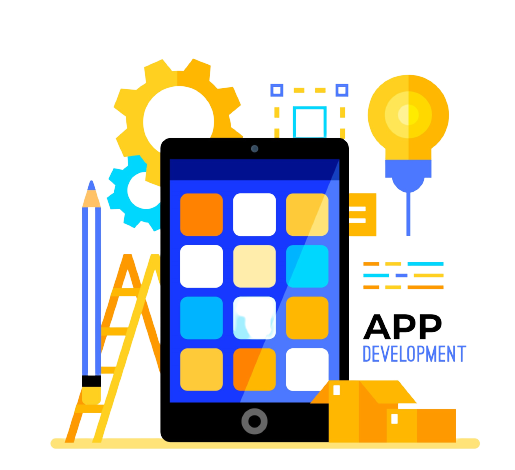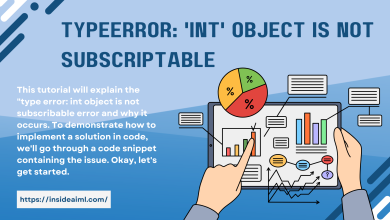How To Become A Mobile App Developer

Learn the Fundamentals of Mobile App Development
To become a mobile app developer, learning the fundamentals of mobile app development, including the different types of mobile apps, mobile app architecture, and user interface design, is essential. It’s also important to have a basic understanding of programming languages such as Java, Swift, or Kotlin. Integrating development environments (IDEs) like Android Studio and Xcode can also be helpful. By mastering these fundamentals, aspiring mobile app developers can gain a solid foundation and be better equipped to develop high-quality, functional mobile apps.
Choose Your Platform: iOS or Android.
Once you have learned the fundamentals of mobile app development, choosing the platform you want to develop for is important. The two main platforms are iOS and Android. iOS is used by Apple devices, including iPhones and iPads, while devices use Android from various manufacturers, such as Samsung, Google, and LG. When choosing a platform, it’s important to consider factors such as target audience, app complexity, and development tools. By choosing the right platform, developers can create high-quality apps that meet the needs of their target audience.
Choose Your Programming Language: Swift, Java, or Kotlin
After choosing a platform, the next step is choosing a programming language for mobile app development. Three popular languages are Swift, Java, and Kotlin. Swift is used for iOS app development, while Java and Kotlin are used for Android app development. Java has been the standard for Android app development for many years, but Kotlin has gained popularity due to its modern features and ease of use. Developers can create efficient and functional apps by selecting the appropriate programming language for their chosen platform.
Master the Development Tools and Software
Once you have chosen your platform and programming language, it’s essential to master the development tools and software required for mobile app development. Popular tools for iOS development include Xcode, an integrated development environment (IDE) designed for building apps for Apple devices. For Android app development, Android Studio is the most commonly used IDE. By mastering these tools and software, developers can streamline their development process, troubleshoot issues more efficiently, and create high-quality mobile apps.
Build Your First Mobile App: Step-by-Step Guide
After gaining a solid understanding of the fundamentals and mastering the development tools, the next step is building your first mobile app. This can be done by following a step-by-step guide that covers the app development process from start to finish, including designing the user interface, developing the app logic, implementing core features, testing, and debugging. Many online resources, including tutorials, guides, and courses, can help developers build their first mobile app and gain hands-on experience. Building your first app will give you valuable skills and confidence for future app development projects.
Test and Debug Your Mobile App
Testing and debugging are critical steps in the mobile app development process. Testing ensures that the app functions as expected and meets the user’s requirements. Debugging is the process of identifying and fixing errors or bugs in the app. Various testing techniques, such as unit testing, integration testing, and acceptance testing, can be used to ensure the app is of high quality. Developers can use debugging tools such as Xcode or Android Studio to identify and fix errors. By thoroughly testing and debugging the app, developers can ensure that the app is functional, reliable, and meets user expectations.
Submit Your Mobile App to the App Store or Google Play
After testing and debugging the app, the final step is to submit it to the respective app store, such as the App Store for iOS or Google Play for Android. To submit the app, developers must create an account with the app store and provide the necessary details, including the app name, description, screenshots, and icons. Once the app is submitted, it undergoes a review process to ensure that it meets the app store’s guidelines and policies. Upon approval, the app is published and made available for download by users.
Stay Up-to-Date with the Latest Trends and Best Practices in Mobile App Development
Mobile app development is an ever-evolving field, and staying up-to-date with the latest trends and best practices is crucial. Developers should stay informed about new features, updates, and guidelines for app development on their chosen platforms. They should also stay up-to-date with industry trends such as new technologies, design patterns, and user behavior. Developers can improve their skills by staying informed, continuously learning, and creating better apps that meet users’ needs. They can also keep their apps competitive in a constantly changing market and improve user experience.
Build a Portfolio and Showcase Your Skills
Building a portfolio is a crucial step in establishing a career as a mobile app developer. A portfolio showcases your skills and gives potential clients or employers a clear picture of your capabilities. You can include screenshots or links to your app on app stores and a description of the features and functionality. Additionally, you can showcase any side projects or personal apps that demonstrate your skills and creativity. Building a strong portfolio and continuously updating it with new projects can help you stand out in a competitive job market and attract more clients or job opportunities.
Network with Other Mobile App Developers and Join Communities.
Networking with other mobile app developers and joining communities is an excellent way to connect with like-minded individuals and learn from their experiences. By participating in online forums, attending industry conferences and meetups, and engaging with other developers on social media platforms, you can broaden your network and gain valuable insights into the latest trends and best practices in mobile app development. You can also share your experiences and learn from others’ feedback, which can help you improve your skills and build a better portfolio. Additionally, networking can lead to new job opportunities and collaborations, further enhancing your career as a mobile app developer.More Option




